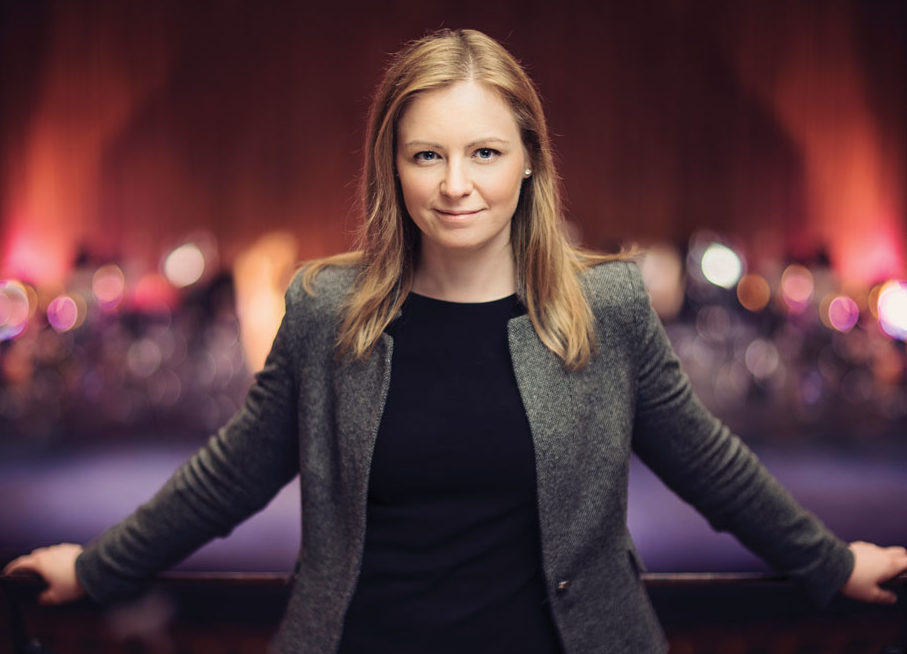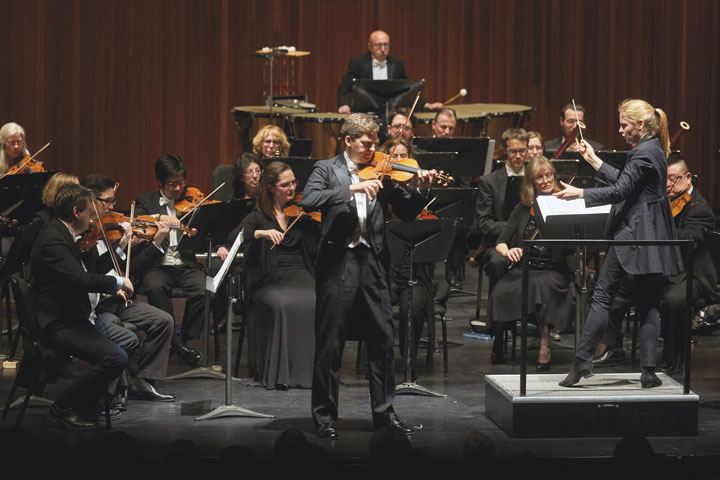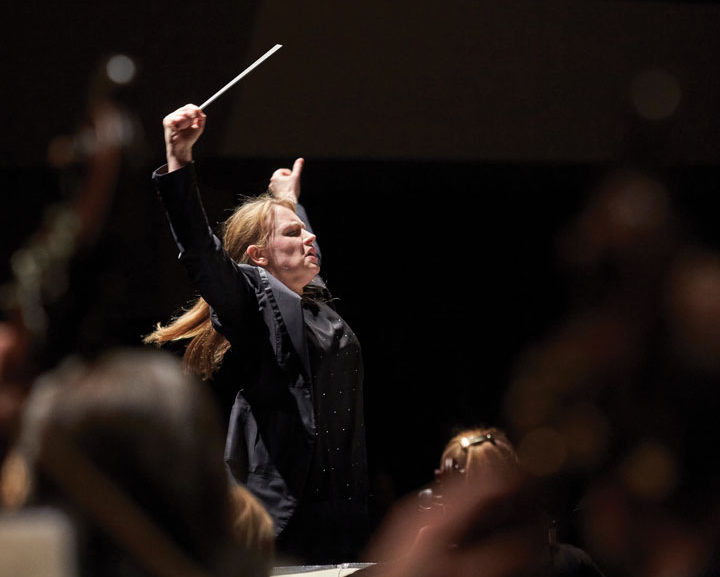Midterm elections will take place across the country on Tuesday, November 6. Much is at stake in Washington, DC, for AFM professional musicians. Though many primaries have already taken place, more are still to come. As we review the legislative, judicial, and political issues that impact our jobs and our families’ lives, the question will always remain, who in Congress will step forward to look out for our interests? Through experience, we know who “on both sides of the aisle” has stood firm with us, leading us to understand how important it is to help keep these musical champions seated here in the nation’s capital. This is why your vote counts. Without our champions, should anti-union forces have their way, all that we have accomplished can be wiped out in an instant.
What Are the Issues? Why Should We Vote?
Over the years, AFM members fortunately have been able to celebrate some significant musical policy gains. It is equally as important to celebrate and thank our champions, as much as it is to identify those who do not see their way fit to support our movement. The following is a brief list of issues, some positive and negative results, as well as a list of our champions and those detractors who need to hear from us.
Legislative Issues
Music Modernization Act (HR 5447): This bill has three components 1) the Music Modernization Act creates a collective to distribute royalties to songwriters; 2) Compensating Legacy Artists for their Songs, Service, and Important Contributions to Society Act (CLASSICS Act) provides a performance right royalty to artist/creators whose music was performed prior to 1972; 3) The AMP Act, which will provide royalties to producers and engineers and other technicians who participate in the production of music sound recordings. This bill sailed through the House of Representatives on a voice vote without the need for floor debate or amendments. As this issue went to print, the Senate had just passed the bill. Result—A positive outcome for working musicians. Write to thank members: https://judiciary.house.gov/wp-content/uploads/2018/09/115th-House-Judiciary-Committee-Updated-9-10-18.pdf.
Support (Appropriations Funding) for the National Endowment for the Arts (NEA) (HR 6147): The NEA recently underwent threats from the White House about zeroing it out. Members of the House Appropriations Committee and the Senate Appropriations Committee have both reported increased funding levels ($155 million for the agency). At this writing, it is now in bicameral conference committee to iron out differences between the House and Senate bills. Though there may be a slight debate on the continued validity of this federal agency, it is believed that Congress will, in its usual infinite wisdom, approve agency funding. Result: Positive, members in bicameral conference. Write to thank members of the House and Senate Cultural Caucuses: https://www.americansforthearts.org/congress/house-and-senate-cultural-caucuses. (Site address courtesy of Americans for the Arts.)
The Supreme Court
Though the following are both judicial decisions, the appointment of judges to the Supreme Court of the US rests in the hands the US President. Even more so, once the president informs Congress of his or her nominee, it is up the US Senate to hold confirmation hearings to approve or reject the candidate. Hence, votes from ultra-conservative members of the US Senate often lead to the placement of conservative judges that might support an anti-worker agenda.
Rebecca Friedrichs, et al. v. California Teachers Association: At issue was whether Abood v. Detroit Board of Education should be overruled, and whether public-sector union “agency shop” arrangements should be invalidated under the First Amendment. Also, whether public employee rights are violated under the First Amendment, requiring that public employees affirmatively object to subsidizing what is referred to as nonchargeable speech by public sector unions under collective bargaining. The question remains, should public sector employees be required to consent affirmatively to subsidizing union political speech? The case centered on the California Teachers Association, which is an affiliate of the National Education Association. Result: Affirmed in a 4 to 4 split decision. A win for labor unions.
Janus v. American Federation of State, County, and Municipal Employees, Council 31: The Supreme Court determined that states and public-sector unions may no longer collect agency fees from nonconsenting employees. The Court set aside, overruled Abood v. Detroit Board of Education, determining that it was “poorly reasoned.” It ruled that “fair share fees” paid by nonunion members violate a worker’s First Amendment rights, and cannot continue unless the employee consents to pay.
Result: Vote: 5 to 4 in favor of the plaintiff. A loss for labor unions.
These major judicial decisions, positively or negatively, shape the future of the union movement and the earning potential of our members. In each case, it is elected officials who make final determinations about who is assigned to the courts and who the winners and losers will be.
Vote!
Now that you have the details of some of our active issues, it is vitally important that you let your legislators know your position. Never underestimate the power of your vote. Voting is both a civic responsibility and a privilege. When we disregard that privilege, we leave policy and leadership in the hands of those who may not see things our way.
Voter Registration
State registration requirements usually originate from the local or state election office. These offices can be found in a number of different locations including in city government, county government, and state voter election offices. Rules differ state to state, so be sure to contact these offices directly, especially if you require an absentee ballot or need to determine your polling place. Some states have ballot drop sites. This information is readily available at your local voting office. You may also be able to register to vote at state motor vehicle offices, Armed Forces recruitment stations, as well as at state and county public assistance offices.
USA.gov notes that citizens who are overseas and military voters (and eligible family members) living outside the US, can register to vote and/or request an absentee ballot through the Federal Voting Assistance Program. You can also register to vote in languages other than English with a National Mail Voter Registration Form, which you must print, complete, sign, and mail to the location listed for your state. The form is available in Bengali, Chinese, Hindi, Japanese, Khmer, Korean, Spanish, Tagalog, and Vietnamese. In addition, voter guides include information on registering to vote and are available in Cherokee, Chinese, Dakota, Japanese, Korean, Navajo, Spanish, Tagalog, Vietnamese, and Yupik.
Avoiding Questionable Information Sources
A lot has been said about false media sources/postings and advertisements that mislead voters. For many, the Internet is a valuable source of information. However, use only trusted news and government sources that you are familiar with to get your questions answered. When in doubt, contact a reliable source. Also, report any suspicious notifications, and at all times, verify any news item that you question with a reliable news organization. The best sources for voter information remain state, national, and local election sites. Don’t be misled by notices that change voting dates, site locations, or give exceptions to certain groups of people about when and where to vote.
If you have questions, please feel free to contact AFM Legislative-Political Director Alfonso Pollard by email at apollard@afm.org or telephone at 202-274-4756.








